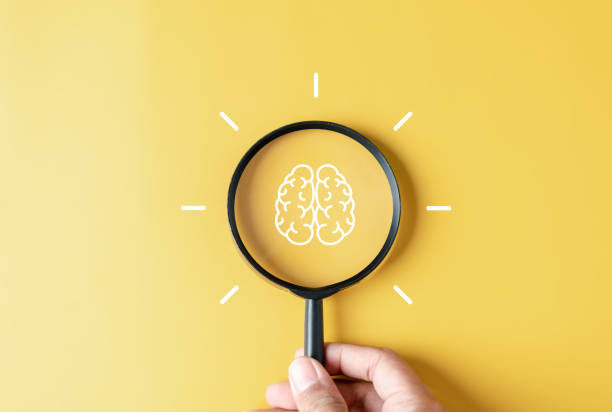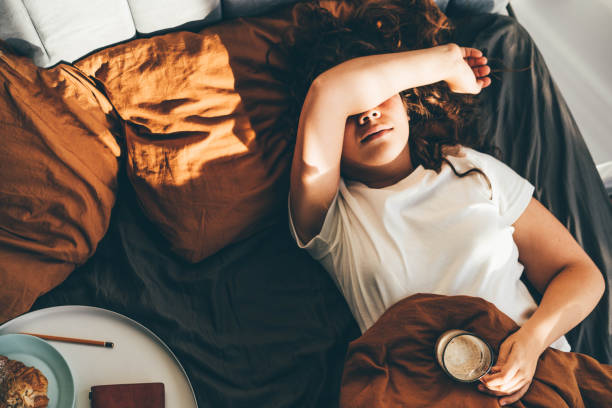Anxiety is a common condition that affects millions of people worldwide. While anxiety can occur at any time of the day, some individuals experience heightened anxiety in the morning. This unexplained phenomenon, known as morning anxiety, can be distressing and significantly impact a person’s daily life. In this article, we will delve into the causes of morning anxiety and explore various solutions to help manage this condition effectively.
Decoding Morning Anxiety Symptoms
Before we explore the causes and solutions, it is essential to understand the symptoms associated with morning anxiety. Many individuals with morning anxiety often wake up feeling restless, with a sense of impending doom or unease. Physical symptoms such as rapid heart rate, shortness of breath, and chest tightness are also common. Moreover, morning anxiety can be accompanied by intense worry, racing thoughts, and difficulty concentrating.
Unraveling the Link Between Morning Anxiety and Stress
Stress plays a significant role in triggering morning anxiety. Stressors from work, relationships, or other daily pressures can accumulate and cause increased anxiety levels, especially upon waking up. The body’s stress response, which involves the release of stress hormones like cortisol, can be heightened in the morning, amplifying feelings of anxiety.
The Impact of Physical Health on Morning Anxiety
Physical health can also contribute to morning anxiety. Conditions like chronic pain, hormonal imbalances, and underlying medical issues may disrupt quality sleep, leaving individuals feeling fatigued and anxious in the morning. Additionally, poor dietary habits or excessive caffeine intake can exacerbate morning anxiety symptoms.
Exploring Mental Health Conditions and Morning Anxiety
Morning anxiety can be a symptom of various mental health conditions, such as generalized anxiety disorder (GAD) or panic disorder. Individuals with these conditions may experience a heightened sense of anxiety upon waking up, which may ease as the day progresses. Additionally, individuals with depression may also experience morning anxiety as a result of disrupted sleep patterns and negative thought patterns.

Understanding the Role of Sleep Disorders in Morning Anxiety
Unresolved sleep disorders, such as insomnia or sleep apnea, can significantly contribute to morning anxiety. Sleep is crucial for regulating emotions and maintaining overall well-being. When individuals do not get adequate quality sleep, it can lead to increased anxiety upon waking up. Addressing and treating any sleep disorders can help alleviate morning anxiety symptoms.
Addressing Morning Anxiety Triggered by Alcohol or Substance Use
Alcohol and substance use can significantly impact mental health and contribute to morning anxiety. While these substances may provide temporary relief, they can disrupt sleep patterns and lead to increased anxiety in the morning. Seeking support for substance abuse issues is essential for managing morning anxiety effectively.
Now, let’s delve deeper into the impact of stress on morning anxiety. Stress can manifest in various forms, including work-related stress, relationship stress, or the stress of daily pressures. These stressors can accumulate over time and cause increased anxiety levels, especially upon waking up in the morning. The body’s stress response, which involves the release of stress hormones like cortisol, can be heightened in the morning, amplifying feelings of anxiety.
Furthermore, it is important to recognize the impact of physical health on morning anxiety. Conditions such as chronic pain, hormonal imbalances, and underlying medical issues can disrupt quality sleep, leaving individuals feeling fatigued and anxious in the morning. The discomfort and pain associated with these conditions can contribute to a restless night’s sleep, leading to heightened anxiety upon waking up.
Morning panic attacks can also be triggered by physiological factors such as low blood sugar levels or hormonal imbalances that are more pronounced in the early hours. Additionally, environmental factors like disrupted sleep patterns or sleeping in an uncomfortable position can contribute to the likelihood of experiencing panic upon waking. Understanding the interplay of these different factors can help individuals develop personalized strategies to mitigate the occurrence of morning panic attacks.Furthermore, it is essential to recognize the role of lifestyle choices in influencing morning panic attacks. Factors such as caffeine consumption, lack of physical activity, or irregular meal times can all impact the body’s stress response and contribute to heightened anxiety levels upon waking. By making conscious adjustments to daily habits and routines, individuals may be able to reduce the frequency and intensity of morning panic attacks. Taking a holistic approach that addresses both the psychological and physiological aspects of panic can lead to more effective long-term management strategies.
Morning Anxiety: Treatment Options and Strategies
Fortunately, several treatment options and strategies can help individuals effectively manage morning anxiety. One common approach is psychotherapy, where individuals can work with a therapist to identify the root cause of their anxiety and develop coping mechanisms. Cognitive-behavioral therapy (CBT) has shown great success in helping individuals reframe negative thoughts and manage anxiety symptoms.
In addition to therapy, medication can be prescribed to individuals with severe morning anxiety. Medications such as selective serotonin reuptake inhibitors (SSRIs) or benzodiazepines may be prescribed to help regulate serotonin levels or provide short-term relief during episodes of heightened anxiety.
Furthermore, lifestyle changes can play a significant role in managing morning anxiety. Regular exercise has been shown to reduce anxiety levels by releasing endorphins, which are known as the “feel-good” hormones. Engaging in activities like yoga or meditation can also help individuals calm their minds and reduce stress levels, leading to a more peaceful start to the day.

Moreover, incorporating a healthy diet rich in fruits, vegetables, whole grains, and lean proteins can support overall mental well-being. Certain nutrients like omega-3 fatty acids found in fish and nuts have been linked to improved mood and reduced anxiety. Avoiding excessive caffeine and sugar intake can also help stabilize energy levels and prevent spikes in anxiety symptoms.
Managing Morning Anxiety: Practical Tips and Techniques
Aside from professional treatments, there are several practical tips and techniques that individuals can incorporate into their daily routine to help manage morning anxiety. Adopting a consistent morning routine, practicing mindfulness or meditation, engaging in regular physical exercise, and prioritizing quality sleep are just a few examples.
Moreover, incorporating relaxation techniques like deep breathing exercises, journaling, or engaging in hobbies that bring joy can help individuals start their day on a calmer note. It is essential to experiment with various strategies to find what works best for each individual in managing their morning anxiety effectively.
Morning anxiety can significantly impact an individual’s well-being and daily functioning. By understanding the causes behind morning anxiety and implementing appropriate solutions, individuals can effectively manage this condition. Whether through therapy, medication, or practical techniques, it is possible to alleviate morning anxiety symptoms and optimize one’s overall mental health and well-being.